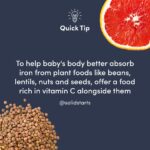When you think about boosting your potassium intake, bananas are probably the first food that springs to mind. However, while bananas are indeed a good source of this vital mineral, they are far from being the potassium champions. In fact, you might be surprised to learn that bananas don’t even crack the top ten list of foods highest in potassium.
So, why is potassium so important, and what foods should you actually be eating to get your daily dose? Potassium is an essential electrolyte that plays a critical role in numerous bodily functions. Adults need around 4,700 milligrams of potassium every day to maintain optimal health. This mineral is crucial for regulating fluid balance, supporting muscle function, and maintaining healthy blood pressure. Adequate potassium intake can also counteract the negative effects of sodium, reduce the risk of kidney stones, and even help prevent bone loss. Unfortunately, many people, especially in America, are not getting enough potassium in their diets. It’s estimated that average consumption is only about half of the recommended daily amount, according to nutrition experts.
Generally, fruits and vegetables are your best bet for potassium-rich foods. Legumes, fish, and dairy products also contribute to your daily intake. Let’s dive into some of the top contenders, revealing foods that pack a bigger potassium punch than the humble banana:
-
Swiss Chard: This leafy green tops the charts. Just one cup of cooked Swiss chard delivers a whopping 960 mg of potassium. That’s more than double the amount in a banana!
-
Spinach: Another leafy green powerhouse, cooked spinach provides 840 mg of potassium per cup. It’s incredibly versatile and easy to incorporate into meals.
-
Avocado: Creamy and delicious, one cup of avocado offers 708 mg of potassium. Plus, it’s loaded with healthy fats and fiber.
-
Sweet Potato: A medium sweet potato provides 700 mg of potassium. Enjoy it baked, mashed, or roasted for a nutritious side dish.
-
Bok Choy: This mild-flavored Chinese cabbage offers 630 mg of potassium per cooked cup. It’s great in stir-fries and soups.
-
Potato: A medium white potato, often overlooked, contains 610 mg of potassium. Leave the skin on for extra nutrients!
-
White Beans: Legumes are excellent sources of potassium. Just half a cup of white beans gives you 600 mg.
-
Beets: One cup of beets provides 520 mg of potassium. Roast them, juice them, or add them to salads for a vibrant boost.
-
Brussels Sprouts: These mini cabbages offer 500 mg of potassium per cooked cup. Roasting brings out their sweetness.
-
Broccoli: A cup of cooked broccoli contains 460 mg of potassium. A widely available and nutritious vegetable.
-
Cantaloupe: For a fruit option, cantaloupe provides 430 mg of potassium per cup. Enjoy it as a refreshing snack or in fruit salads.
-
Banana: And finally, the food we started with! A medium banana provides 420 mg of potassium. Still a good source, but as you can see, there are many better choices.
It’s also important to consider the balance between potassium and sodium in your diet. Potassium and sodium work together to regulate fluid balance in the body. However, if your sodium intake is consistently high, potassium may not be as effective in exerting its beneficial effects. Many processed and packaged foods contain high levels of sodium, which can negate the benefits of potassium-rich foods if you’re not mindful of your overall sodium consumption. Health experts recommend limiting sodium intake to between 1,500 and 2,300 milligrams per day, roughly equivalent to one teaspoon of salt.
In conclusion, while bananas are a decent source of potassium, focusing on a variety of fruits and vegetables, especially leafy greens like Swiss chard and spinach, alongside other options like avocados, sweet potatoes, and beans, will help you maximize your potassium intake and reap the numerous health benefits this essential mineral offers. Pay attention to your sodium intake as well to ensure you’re getting the most out of your potassium-rich diet.
